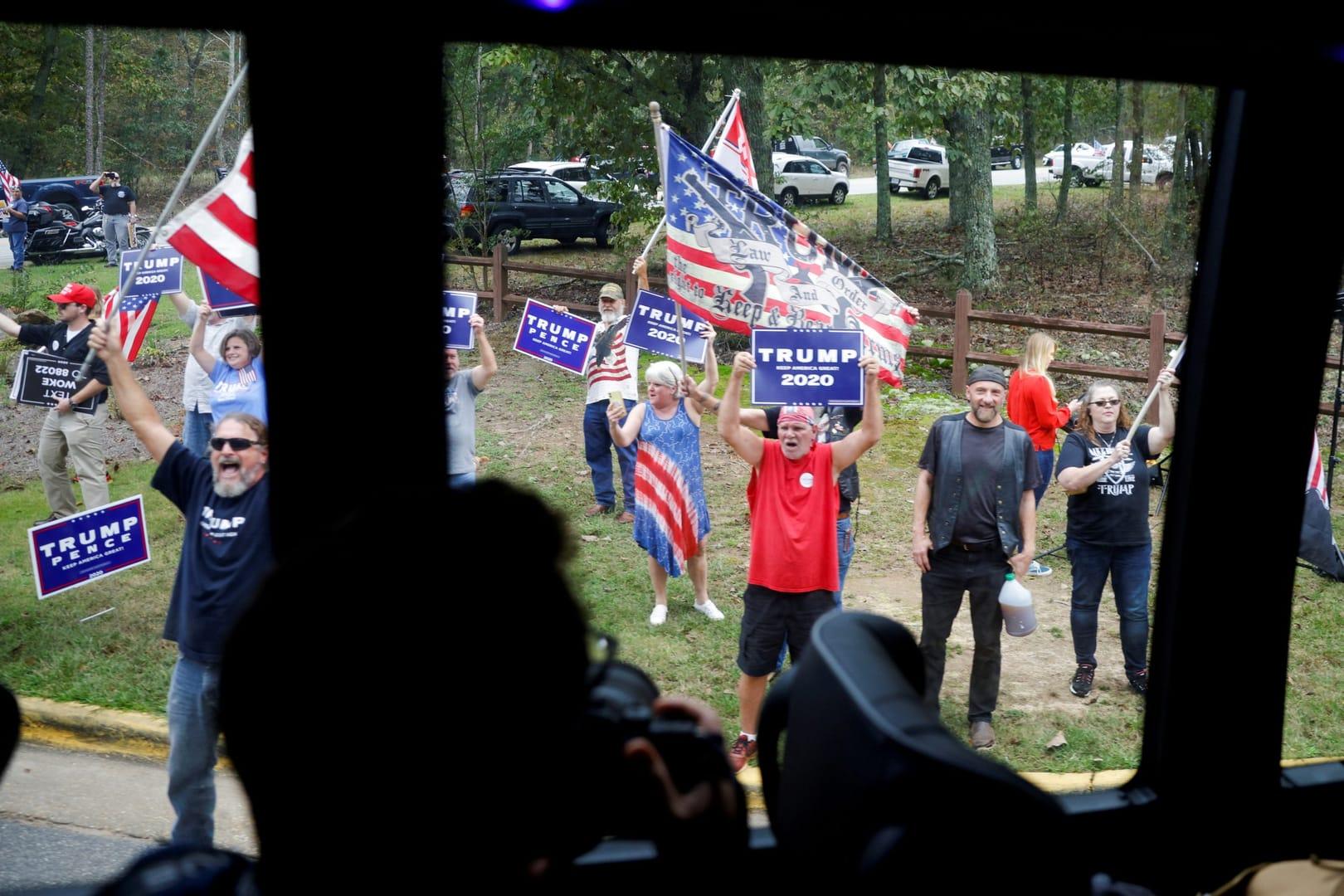CLEVELAND — More than 100 priests and deacons have encouraged fellow clergymen to help ease the fear and uncertainty people may hold over possible violence stemming from the presidential election outcome.
In a brief statement released Oct. 29 by Pax Christi USA, 102 priests and deacons said Catholics are called to be peacemakers, as Jesus encouraged during the Sermon on the Mount as told in the Gospel from Matthew that will be read at Masses Oct. 31 and Nov. 1, the weekend leading up to Election Day.
“We invite our brother priests and deacons to use the time between now and Election Day to address people’s anxiety and tension by cultivating our commitment to the common good, respect for individual conscience, belief in the promise of nonviolence, and trust in the democratic process,” the statement said.
One of the signers, Father Bob Cushing, pastor of St. Joseph Parish in Waycross, Georgia, told Catholic News Service, it is the role of Catholics to heed Jesus’ words.
“We’re concerned that there’s going to be some violence, and if there is some violence we want to make sure there are people who are interested in nonviolent responses,” Cushing said. “Knowing a lot of the church community is interested in nonviolence, we’re trying to get them to affirm that they will respond as peacemakers.”
Johnny Zokovitch, executive director of Pax Christi USA, said the Catholic peace organization offered to distribute a statement of reassurance at a time when threats of violence over election results have been made.
“We’re not probably going to know the results on Election Day and with the rhetoric that has taken place all through the election season, it has people on edge,” Zokovitch said. “We’re looking to safeguard the process for everybody that’s going to make sure the results are respected.”
The priests and deacons in their message suggested that reassurances can be offered in homilies, prayers of the faithful and during announcements at Masses “that inspire our communities to protect one another’s right to vote without impediment or intimidation, to resist rhetoric that seeks to sow division and confusion, and to safeguard the integrity of the process.”
The statement added, “In these days of uncertainty and tension, may we embrace that vocation and practice that peace which is rooted in justice.
Meanwhile, two organizations of Democrats have cautioned clergy about partisan activities on parish grounds and at Masses in the final run-up to the Nov. 3 vote.
Catholic Democrats sent a letter to every Catholic pastor and parish administrator in Pennsylvania offering suggestions on how to prevent partisan politicking.
Dated Oct. 19, the letter expressed concern that partisan political messages in a parish “divide our faith communities.” The letter said “when partisanship finds its way into our spiritual homes, particularly during Mass, it divides us as Catholics at the precise time when we are called to be community in Christ and leaven for the world.”
Included with the letter were suggested guidelines on avoiding partisan politicking developed by the U.S. Conference of Catholic Bishops.
Michigan Catholics for Biden sent a similar letter Oct. 15 to Catholic clergy in the state advising of political events taking place and asking parish leaders “to refrain from making public partisan political statements (direct or indirect) and urge your bishop to do the same.”
Kathy Faba, a representative of the Michigan group, told CNS that the organization had received several reports of partisan support by clergy and church officials from the pulpit, in church bulletins and in other settings.
She said such activities can be divisive and sidestep the call by the U.S. bishops in their quadrennial document, “Forming Consciences for Faithful Citizenship: A Call to Political Responsibility,” which invites voters to reflect on a wide range of issues before casting their ballot.
Recent statements as the election approached from bishops in two dioceses pointed Catholics to the “Faithful Citizenship” document for guidance as they discerned their vote.
Bishop Edward C. Malesic of Cleveland urged the faithful in the eight-county diocese to call on the Holy Spirit in forming a conscience “devoted to doing God’s will more than it is to supporting any particular political party.”
He said he agreed with the bishops who said in an introductory letter to the document that “the threat of abortion remains our preeminent priority because it directly attacks life itself.”
Noting that “we are not a ‘single issue’ church,” Malesic cited other concerns Catholics must weigh such as religious freedom, erosion of the traditional family, and difficulties that poor people experience in accessing adequate education, housing and health care.
“But to be clear,” he said, “although there are many cases our church stands for and is vocal about, the right to life itself must be given our paramount consideration so that people can have the chance to secure all the other benefits that life can afford.”
Bishop David M. O’Connell of Trenton, New Jersey, in his statement called on clergy to help the faithful form their consciences as Election Day approached. He also invited parishioners to carefully review the “Faithful Citizenship” document.
His message outlined eight areas of concern identified in the document: issues that directly affect human life, religious liberty, traditional marriage and family life, disparity between rich and poor, immigration reform, racism and inequality, violence, hatred and crime, and protection of the environment.
O’Connell reiterated that the bishops maintain “that abortion remains our preeminent priority” and how it “contaminates many other important issues being inserted into legislation regarding euthanasia and assisted suicide embryonic stem-cell research, immigration, care for the poor and health care reform.”
Therefore, he said, “careful study, civil dialogue and prayerful reflection should accompany our decision-making as we consider our support for political parties and candidates for political office.”












